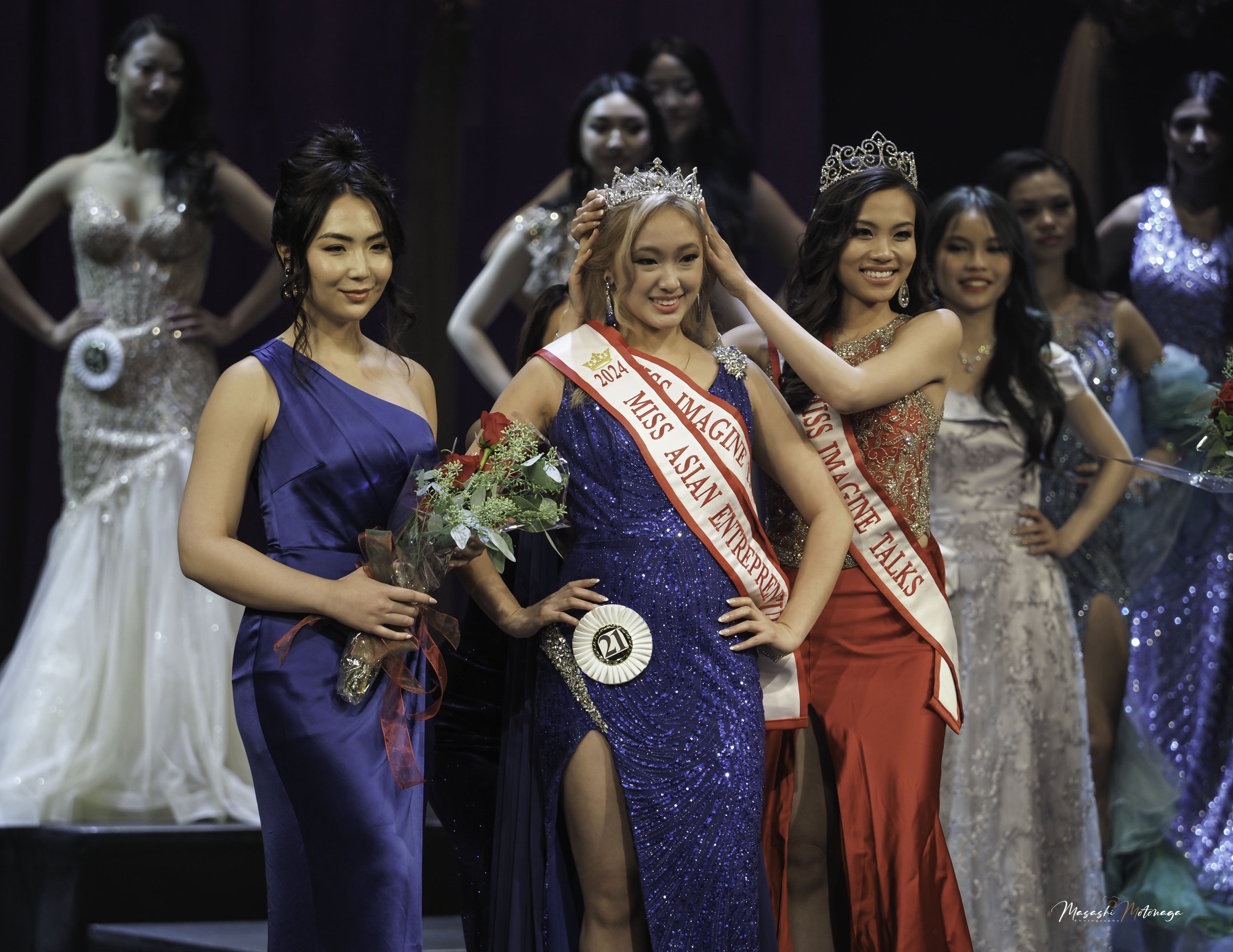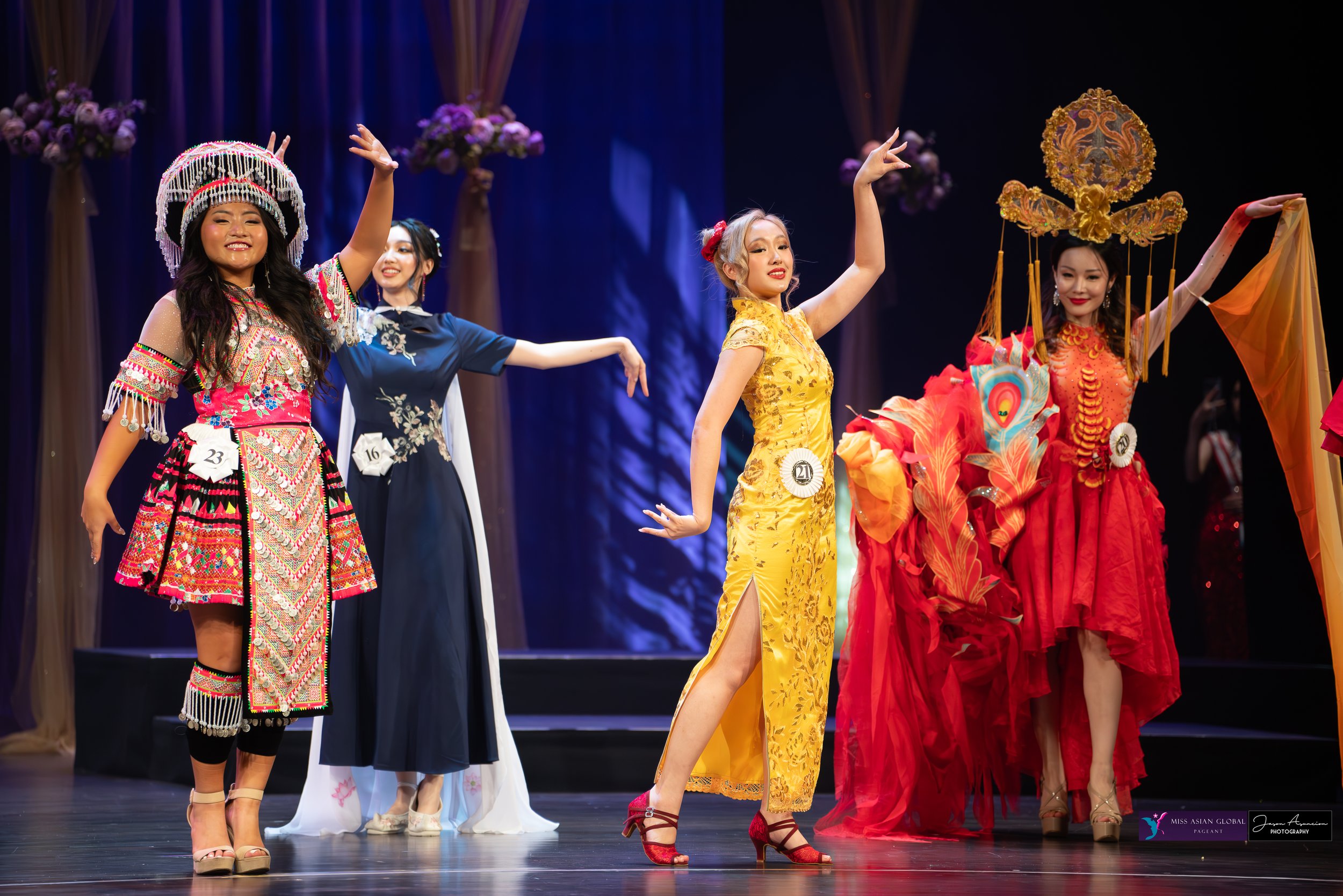How I Found My Voice by Competing in the Miss Asian Global Pageant
For a long time, I thought I had it all figured out. I was the responsible daughter in my Chinese household, where I believed, "If everyone's happy, I'm happy." I labeled myself as the "calm and cool girl" who is chill and doesn't have any issues because I'm flexible. However, this only meant I didn't truly know who I was. Being "chill" about everything clearly indicated that I lacked a sense of my own values and identity.
When I started therapy in September 2023, it was mainly to address my imposter syndrome. I wanted to unlearn what I had been told to be and learn to be who I truly am. I aspired to achieve so much but lacked a clear direction because I was stuck in the same patterns I had experienced in childhood. After moving out, I recognized my family's values but didn't agree with them, prompting me to seek my own values.
Working with my therapist helped me become more self-aware and in tune with my emotions. She taught me how to regulate the outbursts I had when I wanted to defend myself and how to become a better version of myself. One thing I remember sharing with my therapist was my vision of the "perfect woman." The word "perfect" is a strong term because nobody is perfect, but the traits I believe define a perfect woman include beauty, gentleness combined with strength, and being an inspiration to all—especially the younger generation. I expressed how much I wanted to embody that perfect woman, yet I felt clumsy, overwhelmed by anxiety and trauma, and overall sensitive. My therapist encouraged me to hold onto that vision, believe it was within me, and visualize that perfect woman as myself. This reflection brought me back to a goal I had wished for a decade ago: to join the Miss Asian Global pageant.
It wasn't the crown I was after, nor was it the glitz and glam of looking pretty on stage. It was the journey of stepping into the role of the perfect woman I envisioned. I had thought about entering the pageant when I was 17 or 18 because I wanted to be powerful and inspiring to other young girls. I wanted to prove to myself that I could be confident and brave enough to fly across the country and wear a bikini and six-inch heels on stage in front of over 900 people. I wanted to show my authentic self to my family in the audience, to debut who I truly am.
During my eight months of pageant training, I felt like I was on a rollercoaster. I realized there was nothing familiar to me about the experience—wearing high heels, applying makeup, styling my hair, wearing a glittery evening gown, wearing a bikini, posing, walking, and answering interview questions. I had never worn heels or owned a gown in my life. Beyond the physical challenges, I dreaded our weekly speech training. Since I was operating on anxiety 24/7, my brain would freeze when faced with difficult questions about politics or other controversial topics. Many times, I cried after training because I felt inadequate and not as smart as the other girls. This fear became my biggest hurdle throughout the pageant journey, often making me consider dropping out.
However, I continually reminded myself why I had signed up. I spent ten years worrying whether I was too stupid or not elegant enough, and now I have finally made it as a delegate in 2024. Was I really going to give that up just because I messed up an answer during training? I spoke kindly to myself and acknowledged that I was doing a great job.
Therapy provided me with the space to discuss these feelings. I used to be harsh on myself whenever I made a mistake, often asking, "Why didn't you know something so obvious? Everyone else did; why didn't you?"
I realized that this mindset was not helping me grow; instead, it hindered my progress, making me feel punished for not knowing something. I learned to focus on my own journey rather than comparing myself to others.
Through my pageant experience, I began to recognize that my story was relatable to many Asian women like me who were grappling with similar struggles—holding onto our parents' expectations, suppressing our feelings, and being afraid to step out of our comfort zones. The more I shared my story, the clearer it became that I wanted to use my experiences for something bigger than myself. This realization birthed the idea for ROARRIORS.
I wanted to create a platform where Asian American women could openly and honestly discuss mental health, free from shame. I envisioned a space where we could confront the expectations placed on us and learn to embrace our authentic selves. Therapy helped me connect the dots between my personal struggles, my passion for growth, and my desire to empower others.
On August 10, 2024, I was crowned Miss Asian Entrepreneur, Miss Imagine Talks, and became one of the top 10 finalists. After that day, the training ceased, and my pageant journey quieted down, but that wasn’t the end goal—it was part of my journey toward finding my voice and my purpose.
After the pageant, I focused on ROARRIORS by creating a digital mental health platform and launching a podcast. I use my platform—my voice—to uplift others and help women like me navigate their mental health journeys. The pageant served as a stepping stone to something far more meaningful.
(Elise with Anise Health’s CEO and Co-Founder)
I began posting more intentionally on my Instagram, addressing issues that resonate with many Asian American women. I aimed to discuss topics we often shy away from—stepping out of our comfort zones, dealing with trauma, and navigating external pressures. My therapist helped me embrace my vulnerability, encouraging me to stop worrying about how polished everything looked and to simply be real. That’s when I felt most free.
ROARRIORS became the embodiment of that freedom. It’s my space to share, connect, and empower others to roar in their own lives. I aim to launch an episode each month, creating content that I hope makes someone feel less alone on their journey. It’s not about being flawless; it’s about being authentic, embracing growth, and sharing the messy parts of life we all experience.
Therapy didn’t just help me get through the pageant; it helped me find my purpose. ROARRIORS isn’t just a project; it’s my mission to give other Asian American women the space and courage to speak their truth, just as I’ve learned to do. While I still have a long way to go to become the perfect woman I envision, each day brings me a step closer to the version of myself I aspire to be—and I’ve found something incredibly valuable: a way to help others discover their inner strength and roar.






